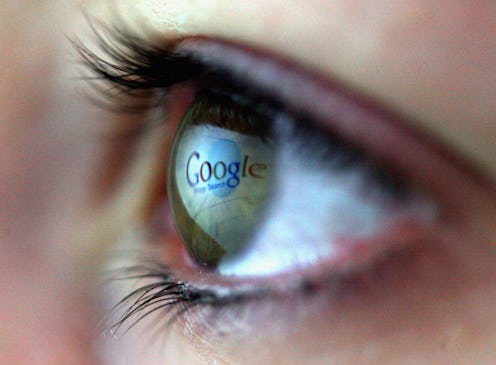News
Google Revamps Search For 15th Birthday
Most teenagers celebrate their 15th birthday with, say, a pool party. But Google isn't most teenagers. On Thursday, Google celebrated fifteen years of glory with the announcement of its new algorithm, the "Hummingbird." Because Google is always one step ahead, Hummingbird's actually been alive and kicking for about a month now, affecting more than nine in ten searches. Google's new algorithm intends to provide a more intuitive answer to searches that address Google like a person. (You know, those normal questions you'd ask your pal, like "Why can't I own a Canadian?".)
Google celebrated its birthday with a special interface and a "Google In 1998" feature. If you log onto Google today, you'll get to meet this adorable pop-up game.
And if you type in "Google In 1998," you can experience time-travel for yourself.
Hmm. Since Google has been under fire recently for regurgitating popular racist searches, we wondered if the company had snuck in an update to fix that too.
Probably not.
OK, definitely not.
Each big Google Search update is given a name: the last, three years ago, was called Caffeine and focused on better indexing websites. Hummingbird's intentions are different, though presumably just as hyperactive. Hummingbird is all about getting better at understanding concepts and phrases rather than just words, and responds fluidly to a conservational question: in short, it seeks to make the interaction between you and Google more personal. You can pick up your phone, ask a question (the Hummingbird update also emphasizes voice-recognition technology) and Google hopes to come up with exactly what you're looking for.
Hummingbird also tries to answer questions that don't have a simple answer, with something called a "Knowledge Graph." For example, a company exec illustrates, let's say you're comparing butter and olive oil.
The Knowledge Graph is just the latest tool used by Google to find exactly what you're looking for. In the same blog post, Google released a visual explainer.
All of this is, if you think about it, a little creepy. Instead of asking a friend for recommendations for dinner, or deciding how to explore a city based on your own map-reading and intuition, Google's getting better at doing all of that for you. At 15, it aims to be a technological "friend" you can demand anything of. And to Google, being 15 years old is only the beginning. "We think about having 100 years to create the most amazing search opportunity," the company's vice-president of advertising said Thursday. "So we are 15 years in."
So what's next? Well, one non-Google analyst told USA Today:
Google's first 15 years have focused on mastering information collection. The next 15 years will be more about information application. The next phase of this is to help provide the right decision-making resources to you at the right time and in the right context. For example, you're driving home from work and Google might remind you that your dry cleaning is ready — 'Would you like to pick it up?' Maybe that info is in Google Calendar or maybe the info has been posted by another company aggregating laundromat services. Just say yes, and your phone or connected car GPS will reroute you to the dry cleaner along with info on some other stores and specials nearby.
This is all starting to overwhelm us, so we're going to go back to playing with the cutesy bouncing letters on Google now, just like they planned it.
